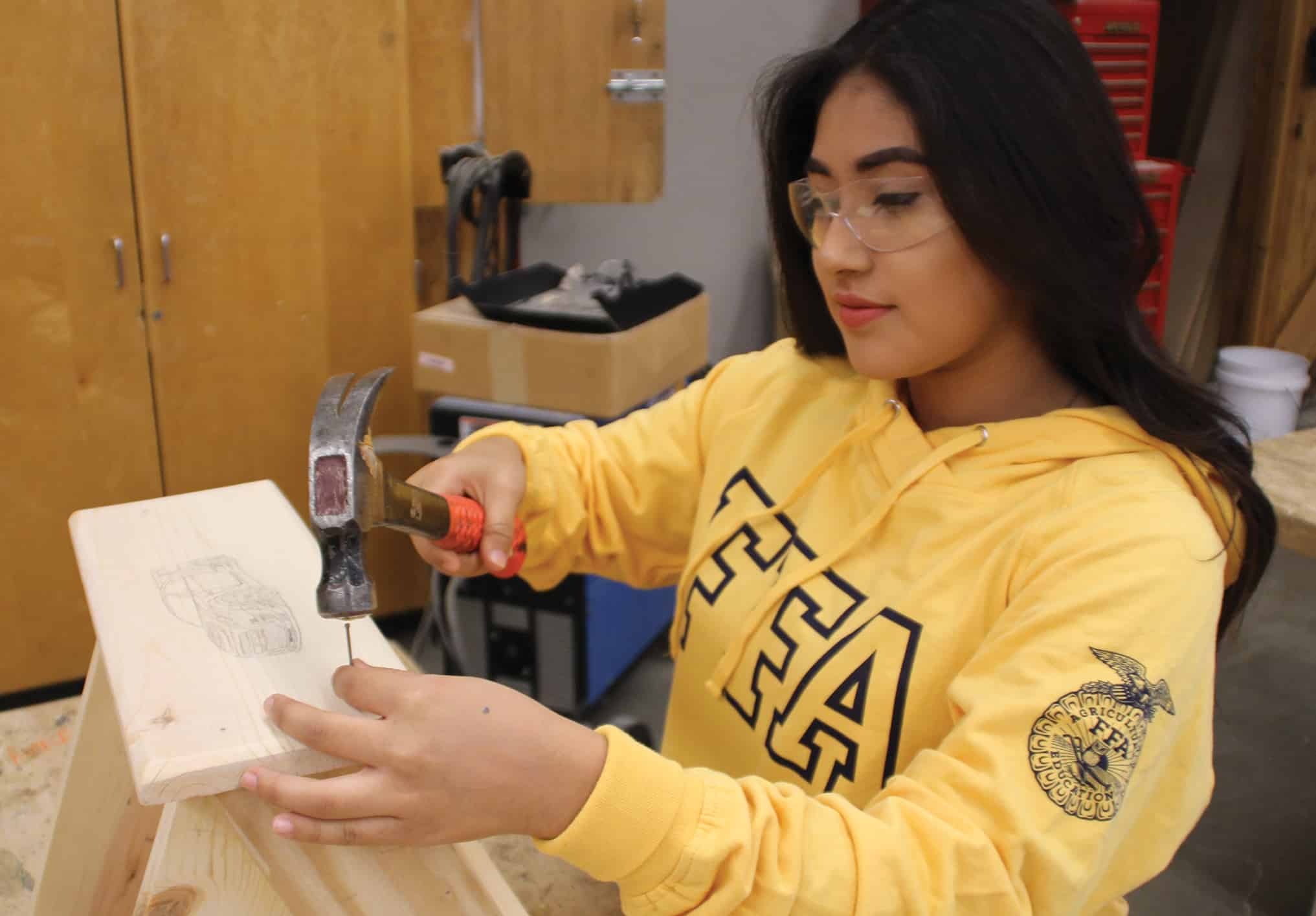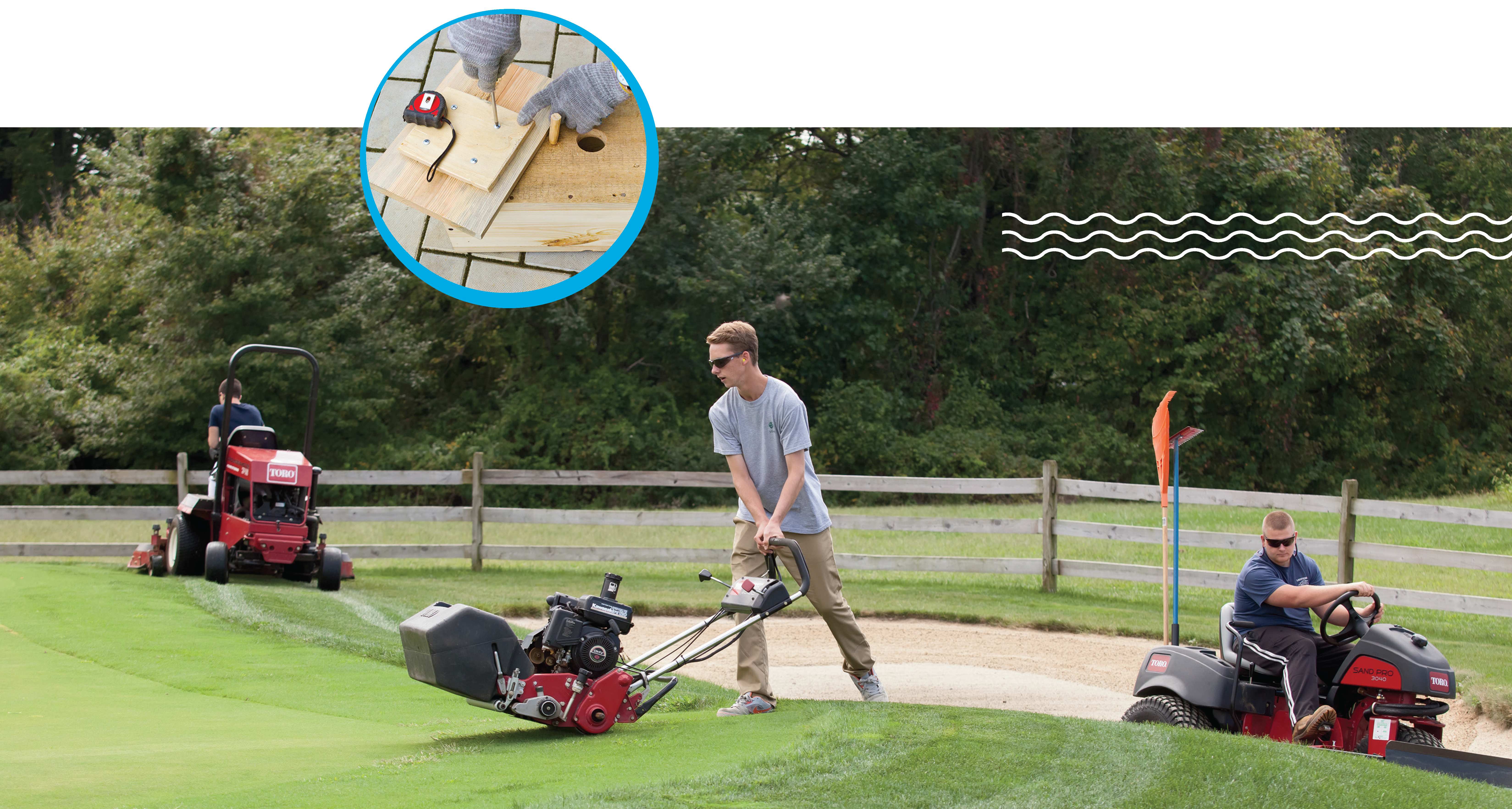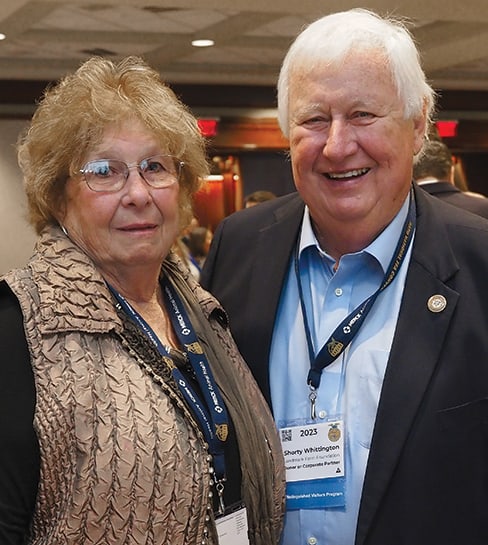“The Kind of Seed That We Want to Plant”
Donors provide lead gift to launch FFA Venture Capital Fund.

Making History
Joan Tovar-Martinez was the first member of his Georgia chapter ever to be recognized at the national level through the Agricultural Proficiency Awards. But the Sumter County FFA member didn’t simply compete at the 2022 National FFA Convention & Expo; he won in the category of grain production-entrepreneurship/ placement and, in 2023, he returned as a national finalist in the diversified crop production-placement proficiency award area. Through his supervised agricultural experiences (SAEs), he became skilled in agricultural technologies and farm management.
SAEs are essential to agricultural education, as they provide experiential work- and project-based learning. Proficiency awards recognize FFA members’ skills and career-based abilities developed through multiple years of involvement in immersive SAEs.
Though he worked part time as a farmhand in high school, Tovar-Martinez credits his FFA involvement as the spark that ignited his passion for agriculture.
“My SAEs helped me shape the path that I want to take, which is to continue being involved in what I love — agriculture,” Tovar-Martinez said. “During my time in high school, I honestly didn’t know what to do for my future.”
Tovar-Martinez is working on his bachelor’s degree in agriculture technology management with an agribusiness minor at Abraham Baldwin Agricultural College (ABAC).
“As I continue to explore my options and endless opportunities here at ABAC, I will have a better, finalized idea of what I want to do in my future career.”

Investing Resources
In 2022, 36% of agricultural education students’ SAEs were entrepreneurial in nature. FFA members have a range of options for owning their enterprises. Many find an area they want to pursue and build a business around it. For example, they may maintain and repair agricultural equipment, manage a breeding stock operation, own a lawn mowing company, or construct and sell birdhouses.
When operating a business, capital — especially cash — is critical. Many high school students don’t have funds to set up or expand a gainful operation. Fortunately, thanks to the support of generous donors, FFA members can apply for and receive National FFA grants to bolster their SAEs. Each year, a limited number of need-based applicants receive $1,000 grants through a highly competitive selection process.
In 2023, National FFA distributed additional financial help for existing SAEs to develop. Eight entrepreneurial-minded members were awarded $5,000-$10,000 each, thanks to funding from long-time supporters Tadd and Nancy Seitz of Ohio. These mid-level grants required
members to provide business plans and budgets in their applications.
Recipients of all SAE Grants learn additional accountability in being a business owner; they are required to submit mid-year reports to National FFA that outline their use of the funds and the progress of their SAEs.
With the support of donors and corporate partners, National FFA continues advancing the SAE Grant program to meet the needs of FFA members.

Growing Futures
Successful businesses can grow out of SAEs, so what do FFA members do when they need more capital to continue their enterprise? What if they want to make a career out of the business they created?
National FFA is expanding the SAE Grant program beyond the mid-level stage to help even more FFA members. The organization will soon roll out a secondary grant program to address this need through a higher level of grant funds for furthering entrepreneurial endeavors (awarding more than $10,000).

Whittingtons
Shorty and Ro Whittington of Indiana donated $500,000 to the National FFA Foundation in 2023. The contribution, made through their Landmark Farm Foundation, is a lead gift to launch a venture capital fund that will help entrepreneurial SAEs thrive. The fund will include a more robust application process, additional business planning and economic growth strategies, and an advisory committee that will serve as mentors for grant recipients.
The Whittingtons are self-described “ag people who are also entrepreneurs.” Shorty founded and owned several successful agri-business companies during his career involving specialized agricultural transportation, terminal operations, and, eventually, a facility that converts soybean oil into biodiesel fuel. He is the former chair of the American Trucking Associations.
Shorty and Ro’s son, John, is an FFA Alum, and their grandson is currently in FFA, so they understand the impact firsthand.
“Beyond checking all the boxes of FFA, SAE projects provide members with the opportunity to continue their passion,” said Shorty.
Ro explained how investing in FFA members is beneficial. She said, “The FFA member gets to convert their SAE into a business and, in turn, those good ideas that come out of SAE projects can end up changing their town and then the world.”
“The FFA [SAE Grant] program is the kind of seed that we want to plant. We want to help get it started and let it grow from there,” Shorty said about their support for FFA members. “If you give a plant enough nutrients, it will reap the benefits.”
STORY BY NICOLE WARD BECKLEY
